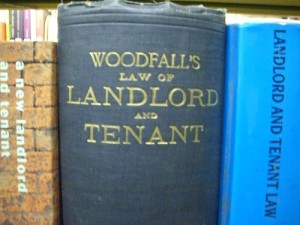Posted by Teresa on July 18, 2013 under Landlord Tips, Lease and Rental Agreements | 
 In Washington and Colorado, voters decided last year that marijuana should no longer be illegal for recreational use. Both states are hammering out rules, regulations and policies to cover this new freedom. But landlords can be stuck in the middle, since pot is still illegal under federal law. Many have added simply added marijuana smoking to their overall smoking bans to keep things simple.
In Washington and Colorado, voters decided last year that marijuana should no longer be illegal for recreational use. Both states are hammering out rules, regulations and policies to cover this new freedom. But landlords can be stuck in the middle, since pot is still illegal under federal law. Many have added simply added marijuana smoking to their overall smoking bans to keep things simple.
But if you don’t live or own rental property in either Washington or Colorado, marijuana is still illegal. And as a landlord, you don’t have to put up with any illegal drug use on your property.
The best way to prevent it is to implement and enforce a zero tolerance drug policy—and to make sure that every applicant and tenant is aware of it. Put it on the lease application and of course, in the lease itself.
Landlords can be at great risk when tenants break the law by using their property for illicit purposes—even if they are completely unaware of it. Hands-on management and close-up monitoring with routine inspections can help you avoid this problem. Of course, you’ll need to give tenants ample notice that you plan to enter the unit, and you certainly can’t snoop through their drawers and closets. So how can you tell if illegal drugs are around?
Many landlords will tell you that their tenants aren’t all that careful when it comes to hiding their drug paraphernalia. Or, you might just catch the odor of marijuana wafting out an open window or through a vent when you’re walking around your property. Keep your ears and the lines of communication open, and you might have other tenants tell you that they’ve seen signs that could indicate drug activity.
When you suspect tenants are using, buying or selling drugs in your rental property, it’s in your best interest to deal with it. If your lease contains a clause that tenants agree to not violate laws, including possession, use, manufacture or sale of illegal drugs, then he or she is violating the lease agreement. Your next move should be to follow your states laws and initiate eviction proceedings.
Evicting over marijuana smoking might seem like evicting over beer drinking, but as long as it’s illegal, you could be open to litigation. It also sends a signal to all tenants that you will always enforce the terms of your lease, 100%. Otherwise, the risk is just too great.
Posted by Teresa on April 21, 2013 under Eviction | 
 Despite your best efforts to lease your rental property only to well-qualified tenants who pass your screening process, not every tenant works out. Some tenants stop paying rent. Others refuse to follow the rules. Eventually, you make the decision to evict and bring in a better tenant.
Despite your best efforts to lease your rental property only to well-qualified tenants who pass your screening process, not every tenant works out. Some tenants stop paying rent. Others refuse to follow the rules. Eventually, you make the decision to evict and bring in a better tenant.
But before you evict a tenant, make sure you are following the laws of your state. Failure to follow the proper legal procedures can result in plenty of trouble for you, and an undesirable tenant still living in your property.
There are certain reasons you can legally evict a tenant, including staying past the termination of the lease and non-payment of rent. Having a pet, sub-leasing or allowing guests to stay without your permission are other examples of legitimate cause for eviction. Disliking the appearance of their visitors, the food they cook at home or the church they attend are not legitimate causes.
Each state will have its own detailed requirements, so be familiar with your state’s procedures before you start. You’ll be required to terminate the lease and give notice of eviction, in writing, before you begin the filing process. The number of days for the notice to vacate will vary according to the state law. Some states require landlords to give tenants time to correct the problem; others don’t.
Depending on your reason for terminating the lease, you may issue:
- A Pay Rent or Quit Notice, which gives the tenant several days to pay or move out.
- A Cure or Quit Notice, which gives the tenant time to correct the problem, such as having their sub-tenant move out or finding a new home for the cat.
- An Unconditional Quit Notice, which requires the tenant to move out, with no chance to pay rent or fix the problem. These are generally used with tenants who engage in criminal activity, repeatedly break the rules or fail to pay rent on time.
Once you start the eviction process, you may be in for weeks or months of court appearances. Tenants can defend themselves, or look for errors in your documents that give them time to stay. If a tenant thinks you are being discriminatory against him or her, or are retaliating for complaints they’ve filed, you could have a long case on your hands.
Before you evict, make sure you have documented all of your correspondence with the tenant; keep things completely professional and whatever you do, don’t change the locks or turn off the utilities in order to force a tenant out. That’s illegal.
If you follow the procedures outlined by your state, you can usually evict a tenant for cause in a matter of weeks. If you don’t, you could lose your case. You can always consult with a landlord-tenant attorney if you need to. Good luck!
Legal disclaimer:
The contents of this article are intended for general information purposes only, and should not be relied upon as a substitute for obtaining legal advice applicable to your situation.
Posted by Teresa on October 1, 2012 under Landlord Tenant Lawsuits, Landlord Tips | 
 Every experienced landlord has a horror story or two about terrible tenants. But a website based in Florida has visual proof: pictures of tenants and the destruction they leave behind.
Every experienced landlord has a horror story or two about terrible tenants. But a website based in Florida has visual proof: pictures of tenants and the destruction they leave behind.
The photos are posted on TerribleRenters.com, a site that aims to spare other landlords the trouble of renting to these folks. Each resident’s full name, along with a description of the problems he or she caused is posted, with photos of the property. Some postings include photos of the tenant.
Check out the site, and you’re going to see what countless landlords are forced to deal with when problem tenants move out:
- Crayon marks on walls.
- Burns on hardwood floors.
- Bags of garbage.
- Un-bagged garbage—piles of it.
- Tenant possessions simply left behind.
- Holes knocked through walls, leaving one room open to the next.
- Filthy carpets and linoleum.
- Rotten food left in refrigerators.
- Ovens that have never been cleaned.
- Drug paraphernalia.
- Animal feces.
- Stolen appliances and fixtures.
- Spray painted messages on walls and ceilings.
The list goes on and on. It is truly astounding to see how some people live. It’s even more shocking that they think it’s acceptable to leave such messes behind.
The typical “terrible tenant” has been evicted for non-payment of rent, not for damaging the property—so landlords face a double-whammy: loss of rent, plus the expenses of cleaning up garbage and property, expensive repairs and replacing stolen items.
TerribleRenters.com is based in Florida and most of the submissions are Florida residents, but some are from other states. Landlords post anonymously. Some are looking for their tenants to serve them notice or to file charges. Others just want to warn landlords not to lease to these problem tenants.
The best way to avoid problem tenants is to conduct thorough tenant screening. And it doesn’t hurt to Google the names on the application. Who knows? Maybe your applicants are listed on a terrible tenants site somewhere!
Posted by Teresa on August 18, 2011 under Landlord and Tenant FAQs | 
 Q: Can a landlord prevent a tenant from breaking a lease with 60 days’ notice, due to trauma from a violent crime that occurred in the rental unit?
Q: Can a landlord prevent a tenant from breaking a lease with 60 days’ notice, due to trauma from a violent crime that occurred in the rental unit?
A: In some cases, and in some jurisdictions, the law would allow a lease to be broken without penalty. Usually, a tenant who signs a one-year lease cannot terminate it mid-term, even with a 60-day notice. In general, a landlord is not liable for unforeseen criminal acts of a third party against his or her tenants. If the tenant had reported issues regarding safety, such as inoperable door or window locks, or insufficient lighting, the tenant may have recourse, as the landlord could be considered in breach of the lease for failing to protect the tenants.
In a case like this, landlords could find themselves between a rock and a hard place, wanting to avoid any admission of liability by allowing a tenant out of a lease, while understanding why they would want to move.
Q: If I see that a tenant is demonstrating some hoarding tendencies, should I intervene?
A: Landlords have the right to expect a tenant will keep the rental property in good, clean and safe condition. Hoarding can be a safety hazard, particularly if flammable materials are kept in large quantities or emergency crews would have a difficult time navigating through the unit. Tenants who keep debris, garbage, empty boxes and cans, and stacks of newspapers in a rental unit are endangering themselves and other tenants.
Don’t ignore this situation. Keep the lines of communication open and respectfully and gently talk to the tenant about the situation. You may need to try contacting a family member (perhaps from the emergency contact listed on the lease application).
Q: My tenant damaged a wall and hardwood floor by carelessly leaving a window open during a rainstorm. I took the repair money out of their security deposit, and they replenished it. Now I want to terminate the lease to prevent this from happening again. Do I have that right?
A: Carelessness is not gross negligence. If the tenant is on a month-to-month lease, then you may terminate with notice, with no reason given. But if it’s a longer lease, this situation probably will not qualify as an allowable reason.
Legal disclaimer:
The contents of this article are intended for general information purposes only, and should not be relied upon as a substitute for obtaining legal advice applicable to your situation.
Posted by Teresa on July 1, 2011 under Eviction, Lease and Rental Agreements | 
 While a lease agreement and landlord/tenant relationship is a strictly business arrangement, landlords sometimes have to deal with a tenant’s personal problems. Loss of a job, a need to break a lease and move to another city, and other life situations cross the line into a personal nature.
While a lease agreement and landlord/tenant relationship is a strictly business arrangement, landlords sometimes have to deal with a tenant’s personal problems. Loss of a job, a need to break a lease and move to another city, and other life situations cross the line into a personal nature.
When tenants have protective orders against spouses, partners, or acquaintances, the landlord may not even know. However, when the other party violates the order and enters the rental property, problems can ensue all around.
One tenant in California was faced with eviction when her husband, from whom she was separated, threatened and stalked her at her apartment. Police were called and the tenant obtained a restraining order, but the property manager informed her she needed to move to avoid upsetting her fellow tenants.
In California, and most other states, a protective order protects tenants from repercussions such as eviction. Domestic violence that has been documented, as in this case, is not a reason for terminating a lease. But what if the tenant had allowed the stalking troublemaker onto the property? That’s another story. If the tenant is voluntarily subjecting other tenants and the property to possible harm by allowing a dangerous person onto the premises, eviction may be warranted.
Under Federal guidelines for Section 8 owners, landlords may not refuse to rent to an applicant solely because he or she is a victim of domestic violence, dating violence or stalking. Nor can the tenant be evicted, even if criminal acts (such as property damage) related to the domestic or dating violence or stalking, are caused by the tenant or a guest. There is an exception for cases in which there is an actual or imminent threat to other tenants or employees of the property if the tenant is not evicted.
Many states follow the federal guidelines, but if you need guidance on a situation, it’s best to check with a local law official or landlord/tenant attorney for advice.
It’s not easy to be privy to the personal problems of tenants, but at times a landlord can’t avoid it. It’s important to know what is and is not allowed when dealing with legalities such as restraining orders.
Legal disclaimer:
The contents of this article are intended for general information purposes only, and should not be relied upon as a substitute for obtaining legal advice applicable to your situation.
Posted by Teresa on October 20, 2010 under Eviction, Landlord Tips | 
 Eviction is typically the last step a landlord wants to take with a tenant. But it’s a reality in the real estate investment business. Most experienced landlords say the biggest mistake they make around eviction is waiting too long to start the proceedings.
Eviction is typically the last step a landlord wants to take with a tenant. But it’s a reality in the real estate investment business. Most experienced landlords say the biggest mistake they make around eviction is waiting too long to start the proceedings.
So if you’re a landlord who is heading down the road toward evicting a tenant, here are 5 things you should know:
- Eviction comes after you legally terminate the tenancy. The requirements for giving a tenant notice that the tenancy has been terminated varies by state; every landlord should know the regulations in his or her state. Usually, a written notice is required, for example, a notice that the tenant pay the rent due by the 5th or the eviction lawsuit will proceed. (This is a “pay or quit” notice.)
- Every state has its own requirements for how eviction papers are written and served, too. Look up your state law on eviction; read it thoroughly. Ask an attorney to explain it if any statute or requirement is unclear.
- Many rental property owners advise new landlords to hire a landlord/tenant attorney to handle your first eviction to make sure that everything is done correctly. You don’t want your case thrown out of court because you’ve missed a legal notice or mixed up the number of days you are required to give the tenant to correct the problem.
- If your tenant fights the eviction, your case could take many weeks or months to go through the courts. Every notice, every complaint, and your history as a landlord could be scrutinized. It’s vitally important that you keep excellent records, treat every tenant equally and abide by your state and local laws throughout the entire eviction process.
- Depending on your state, you may have responsibilities after an evicted tenant moves out. In some states, the property owner is required to store a tenant’s left-behind property and notify them for a minimum time period before disposing of it.
It’s not easy to evict a tenant—for a reason. Forcing a person or family out of their home is not taken lightly. Be well-prepared if you must evict—and to reduce the probability of needing to evict, be sure to order a thorough tenant screening before you sign a lease with a potential tenant.
Legal disclaimer:
The contents of this article are intended for general information purposes only, and should not be relied upon as a substitute for obtaining legal advice applicable to your situation
Posted by Teresa on June 8, 2010 under Eviction, Tenant Screening & Background Checks | 
 Elaine is a responsible, no-nonsense landlord. Her leases are clear and thorough, and her tenants generally live by her rules. Every now and then, however, Elaine signs a lease with a tenant who unexpectedly starts causing trouble—despite her checking the tenant’s rental history, criminal background, and credit.
Elaine is a responsible, no-nonsense landlord. Her leases are clear and thorough, and her tenants generally live by her rules. Every now and then, however, Elaine signs a lease with a tenant who unexpectedly starts causing trouble—despite her checking the tenant’s rental history, criminal background, and credit.
This time it’s a young woman who is simply too loud. She plays her TV at top volume, listens to bass-busting music late at night, and has way too many parties with her also-loud friends.
Elaine has reminded the young tenant about her rules on disturbing the peace. She’s asked her to discontinue the behavior. And now, other tenants are complaining. Elaine is ready to issue a Three-Day Notice to Quit. Is that her best option?
According to our sources, no. This non-conditional notice is generally used when whatever is happening to breach the lease cannot be corrected. Examples include illegal behavior like selling drugs, irreparable damage to the property, or subleasing the property without permission. The notice tells the tenant that if they are not out in three days, eviction proceedings will begin.
In this case, Elaine’s tenant could still correct her problem—just by quitting the loud parties and turning down her stereo equipment. Therefore, a Three-Day Notice to Perform Covenant or Quit is the better recourse. It must specifically state the behavior that breaches the lease so the tenant can correct it.
Then if the problem continues over the three-day period, Elaine can start eviction proceedings. But what if the tenant quiets down for three days, and turns up the volume again? Hopefully, the threat of eviction is enough to inspire behavior modification in this tenant. If not, another Three-Day Notice to Perform Covenant can be issued. After a few of these, it might be time for the Three Day Notice to Quit!
Legal disclaimer:
The contents of this article are intended for general information purposes only, and should not be relied upon as a substitute for obtaining legal advice applicable to your situation. Always consult your legal advisor for your particular situation.
Posted by Teresa on April 16, 2010 under Landlord and Tenant FAQs, Landlord Tips, Rents and Deposits | 
 Ask ten landlords about rent due dates and last charges, and you’ll probably get ten different answers—none of them wrong. The thing about running a rental property business is that you get to establish your own procedures and practices to suit your needs—within the limits of federal, state, and local laws, of course. And if they don’t work for you, you can always change them (your procedures, not the law)!
Ask ten landlords about rent due dates and last charges, and you’ll probably get ten different answers—none of them wrong. The thing about running a rental property business is that you get to establish your own procedures and practices to suit your needs—within the limits of federal, state, and local laws, of course. And if they don’t work for you, you can always change them (your procedures, not the law)!
Here we present the results of an informal survey we conducted among four landlords we know:
Landlord #1: This landlord is a stickler for rules. Rent is due on the 1st of the month. It’s late on the 2nd, which is when he posts his pay or quit notice. He doesn’t mess around—and he has excellent cash flow numbers to back up his policy. “A grace period means rent isn’t due until the grace period is over,” he says. Using an online rent payment system helps—all of his tenants arrange to pay their rent online on the 1st of each month.
Landlord #2: Rent is due on the 1st, and a 10% late fee is tacked on the 4th. Each day after, $10 more is added to the late fees. The eviction notice, however, is posted on the door on the 3rd of the month—to encourage payment.
Landlord #3: With many older tenants who depend on Social Security and Section 8, this landlord knows that rent due on the 1st doesn’t work. So, while rent is due on the 1st, there is a grace period until 5 p.m. on the 4th. On the 5th, the 3-day eviction notice is posted; if rent is paid during that time, the landlord adds a $50 late fee.
Landlord #4: This landlord wins the “flexibility” award. Rent due dates are negotiated with each tenant during the lease signing, depending on when the tenant can pay each month. Some have Social Security arriving on the 8th of the month, so that is when their rent is due. Others are paid on the 1st and 15th of the month, so the rent is due on the 2nd. Still others want to pay out of the second paycheck, so theirs is due on the 16th. All of these due dates would cause some landlords to pull their hair out—but this woman says when it comes to money that is owed to her, she can easily keep track of it.
The most important advice these landlords give is to check your local laws—you may not be able to charge a late fee at all, and many states will dictate when you may post an eviction notice.
Posted by Teresa on August 27, 2009 under General | 
 The most common cause for evicting a tenant is probably nonpayment of rent. Experienced landlords do not hesitate to begin eviction procedures when tenants are in arrears on rent. So if you plan toever evict a tenant, then think like a Boy Scout—and be prepared.
The most common cause for evicting a tenant is probably nonpayment of rent. Experienced landlords do not hesitate to begin eviction procedures when tenants are in arrears on rent. So if you plan toever evict a tenant, then think like a Boy Scout—and be prepared.
Be prepared for excuses: You might hear about your tenant’s difficulties, whether from the economy, job loss, health, or even the weather. You could hear that there is damage or mold in the unit that renders it uninhabitable. You might hear any number of reasons why your tenant has not paid the rent—which is the only thing that matters. As landlord, you are entitled to decide whether or not to evict based on the tenant’s situation. Just be prepared for nonpayment of rent to occur again.
Be prepared with all the eviction paperwork required by your local court. Some want a copy of your deed, the lease, the exact names of everyone living in the rental unit (whether or not they are on the lease) and copies of all notices to pay rent or quit (evict). Your jurisdiction may want more information, so be sure to ask the clerk of court or magistrate’s office. You’ll also need proof of non-payment, so gather up all check copies for the tenant for at least the previous year.
Be prepared to hire a lawyer. If you have never evicted a tenant before, many experienced landlords would strongly recommend you hire a Landlord/Tenant attorney before proceeding with eviction. They can keep you from making crucial mistakes and losing your case.
Be prepared to spend money. There will be fees associated with preparing your case. And if you decide to hire an attorney, you will be responsible for his or her fee, as well.
Be prepared to follow the court’s procedures. The court will require you to fill out paperwork correctly and follow every procedure to the letter. If you don’t, you could have your eviction case thrown out and have to start again. Consider observing a day in court when they hear eviction cases—seeing other landlord’s eviction errors could help you avoid them.
Be prepared for a fight. Your tenant may not even show up for court. If so, you will likely win your case. But if they do appear, remember that tenants have rights, too, and are entitled to plead their case before the judge. Be prepared to defend yourself. You may hear things that will surprise you, but stick to the facts and avoid arguing or confrontation.
Eviction is never easy, but it is a part of being a landlord. Just remember to be well prepared for whatever surprises may come up!
Posted by Teresa on March 18, 2009 under Eviction, Landlord Tenant Lawsuits | 

Courtesy of www.flickr.com/umjandoan
Eviction: the word itself sounds unpleasant, and it is—on both sides. Does any landlord begin the eviction process against a tenant unless it is absolutely necessary? It’s not likely that anyone actually enjoys the legalities, paperwork, court orders and stress that accompany this process.
The best way to prevent having to evict tenants is to do the work required up front to attract and retain the best tenants. A few examples are:
1. Keep your property in the best possible condition;
2. Keep communication open with your tenants;
3. Screen tenants prior to signing the rental agreement;
4. Put everything in writing.
Even when all seems to be going well, you could still experience a situation that cannot be tolerated; and eviction is the eventual result. Knowing what to do in this case can make it easier.
Eviction laws vary by state and even by locality; it is vital to follow them precisely. You may decide to consult an attorney or eviction service to assist you; if so, the web is a great resource to find these specialists.
There are basic rules to evict problem tenants, no matter where you live. First, a legal reason, such as violating the lease agreement, is required. Second, you must give the tenant notice. Each state has exacting procedures that define “proper notice.” Keep in mind that in some localities, you may not follow through on the eviction if you accept rent payments after giving notice. Third, you will have a legal proceeding before a judge. If the judge’s rule calls for eviction, there will be a notice of eviction from the court.
Now, the court may side with the tenant; if you decide to appeal the decision, be prepared for another lengthy and costly procedure. You will likely need legal representation for the appeals process. And, the tenants can appeal, as well—so a first-round victory doesn’t mean you’re completely off the hook.
Preparation is key: a solid rental agreement, along with evidence (such as photographs and communication logs) will be your best tools when facing the eviction process. It’s easier to stay organized from the beginning than to try to catch up when you’re facing a court date!
Next Post: Becoming a Landlord
 In Washington and Colorado, voters decided last year that marijuana should no longer be illegal for recreational use. Both states are hammering out rules, regulations and policies to cover this new freedom. But landlords can be stuck in the middle, since pot is still illegal under federal law. Many have added simply added marijuana smoking to their overall smoking bans to keep things simple.
In Washington and Colorado, voters decided last year that marijuana should no longer be illegal for recreational use. Both states are hammering out rules, regulations and policies to cover this new freedom. But landlords can be stuck in the middle, since pot is still illegal under federal law. Many have added simply added marijuana smoking to their overall smoking bans to keep things simple.







